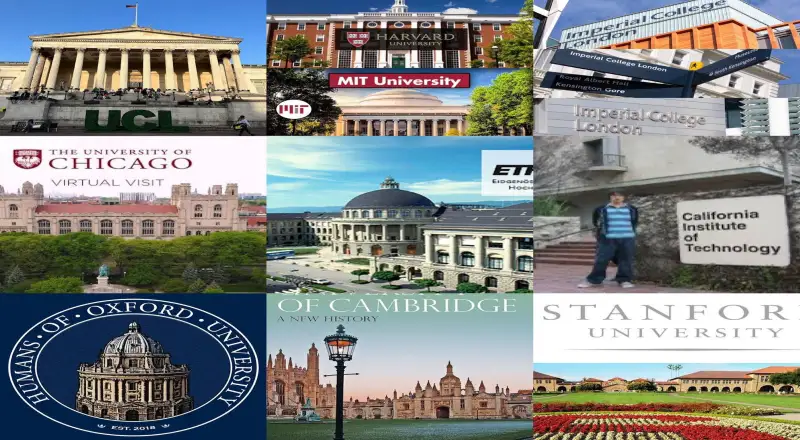Top 10 Universities in the World
2024
votes
voters
views
items


MIT is known for its cutting-edge research and innovation, particularly in science, technology, and engineering. Its interdisciplinary approach fosters groundbreaking discoveries, making it a hub for future tech leaders and Nobel laureates.

Located in Silicon Valley, Stanford excels in both academic rigor and entrepreneurial spirit. It has nurtured some of the most influential tech startups, like Google, and offers world-class programs across disciplines like business, law, and computer science.

As the oldest university in the United States, Harvard represents tradition, prestige, and academic excellence. Its broad range of programs, from law to the humanities, and its unparalleled alumni network make it a beacon for global leaders and scholars.

Founded in 1209, Cambridge has a rich history of academic achievement, particularly in the sciences and the arts. It has produced numerous Nobel laureates and is known for its strong research output, centuries-old traditions, and renowned college system.

Oxford is renowned for its historic colleges and tutorial-based learning system. With a legacy of scholars, including 30 world leaders and 72 Nobel Prize winners, Oxford continues to be a leader in the humanities, sciences, and social sciences.

Caltech is a small but mighty institution, specializing in STEM fields. Known for its impressive student-to-faculty ratio and research capabilities, especially in physics and engineering, it’s a powerhouse for scientific breakthroughs.

Located in Switzerland, ETH Zurich is a leader in technology and the natural sciences. With a focus on sustainability and innovation, the university has made significant contributions to research in robotics, climate science, and quantum computing.

Known for its intellectual rigor and emphasis on free inquiry, the University of Chicago excels in fields like economics, law, and political science. It has produced 94 Nobel laureates and is a global leader in fostering critical thinking and public discourse.

